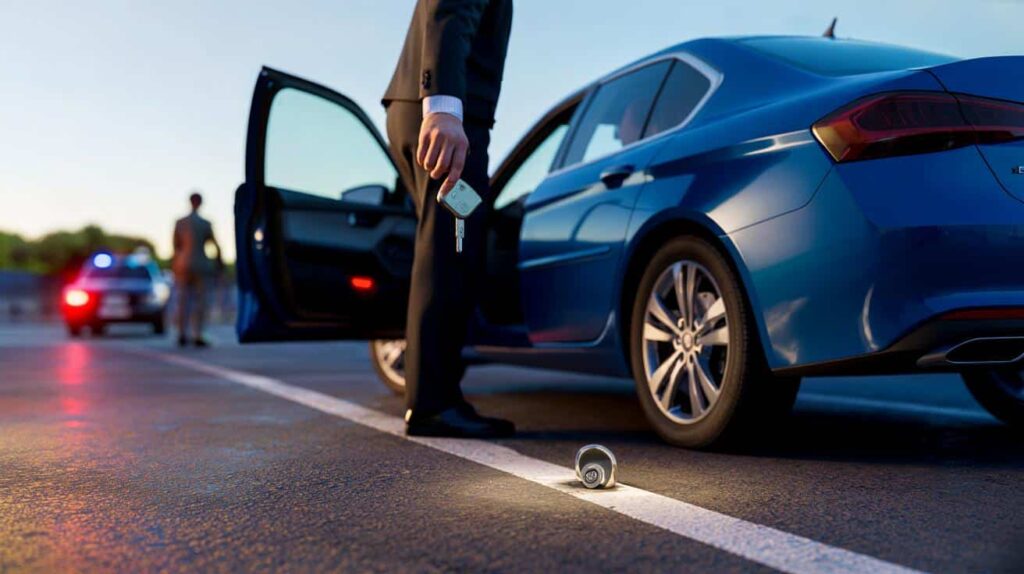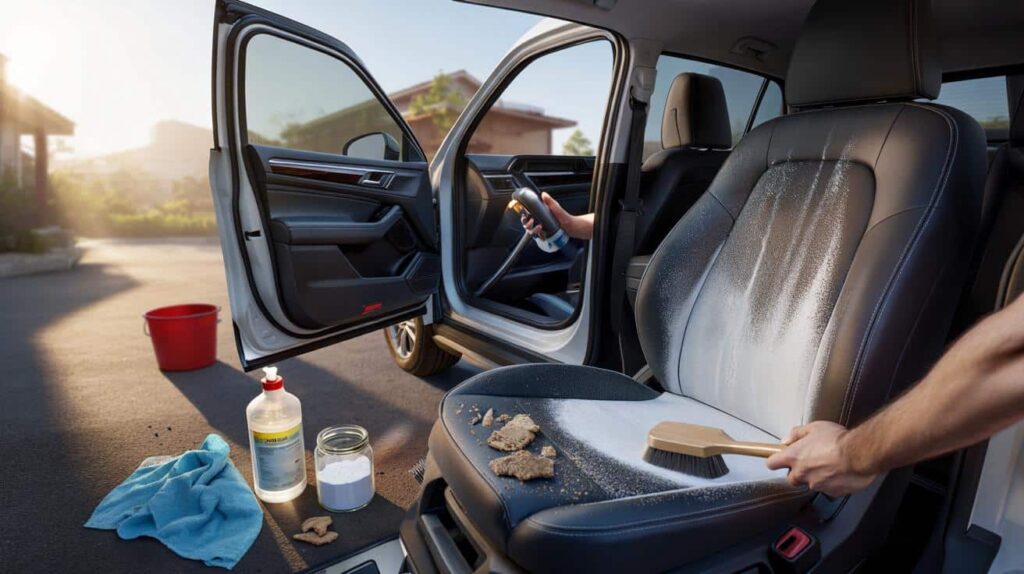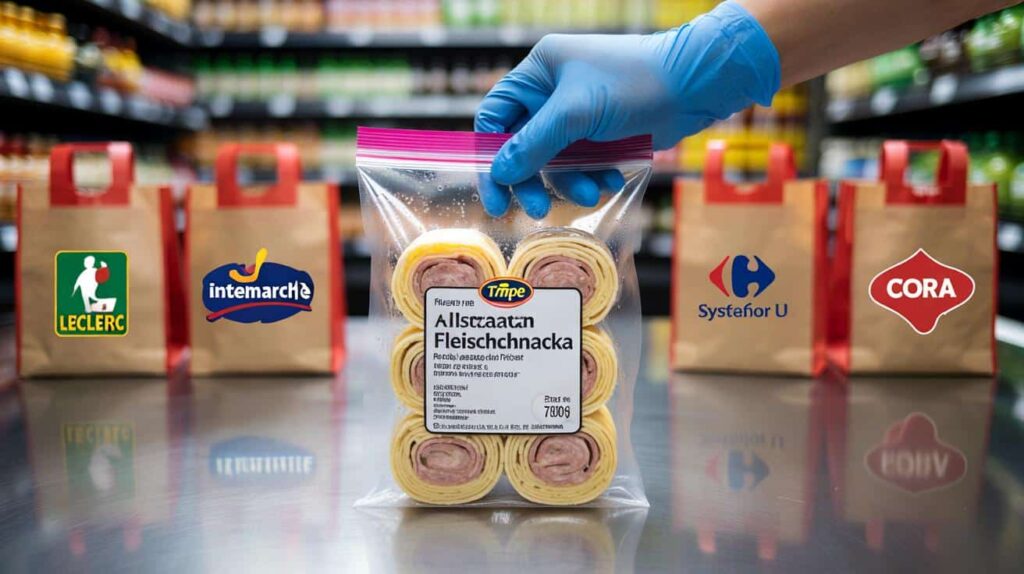Minor details determine whether your routine remains consistent.
You unlock the car, reach for the handle, and something catches your eye near your feet. That brief moment is where many thefts start, according to police who monitor distraction techniques in retail parking lots and side streets.
Why police advise scanning the ground
Officers caution about a straightforward, coordinated scheme that exploits reflexes. One individual drops or places an item near the driver’s door. A coin, a keychain, a small screwdriver, or even a folded note. The intention is not to offer you a gift. They want you to bend down and divert your gaze from the cabin for just a moment.
While your focus wanes, an accomplice opens a door and grabs what’s easiest to take: a handbag on the passenger seat, a phone on the console, a wallet in a cup holder. The entire operation occurs in seconds, without any shouting or struggle, and the thieves walk away or slip into a nearby vehicle.
Scan the ground, enter first, and lock immediately. Treat any object near your door as a signal to secure the cabin before doing anything else.
The drop-and-grab, step by step
- Spotting: an accomplice lingers near vehicles, observing drivers balancing bags, children, or receipts.
- Placement: an object is placed close to the seam of the driver’s door or under the sill.
- Reflex: the driver bends down, glances at the ground, or steps back to retrieve it.
- Entry: an accomplice attempts the nearest unlocked door and takes the visible item.
- Exit: they leave calmly, often blending in with pedestrian traffic or returning to a waiting vehicle.
What to do the moment you notice an item
You don’t need to figure out the mystery. You just need to eliminate the opportunity window that makes the tactic effective.
- Enter the car first, then lock all doors. Most fobs lock faster than you might expect.
- Start the car if you feel uneasy and move a few spaces, ideally towards people or cameras.
- Keep valuables out of sight before unlocking: phone and wallet on you, bag in the footwell behind your legs.
- Look around, not down. Check mirrors and glass for anyone lingering within reach.
- If the object appears sharp or unusual, do not touch it. Call site security or drive away and inform the store.
- If someone tries your door, honk the horn and remain inside. Only exit when you have a clear path to drive away.
Your car isn’t the target. Your attention is. Protect that, and most quick thefts will fall apart.
Small habits that thwart the scam
Thieves depend on predictable routines. A few minor adjustments can eliminate their timing advantage.
| Habit | Why it works |
|---|---|
| Unlock only when you reach the handle | Minimizes the time doors remain open or unlocked while you’re distracted |
| Lock immediately after entering | Closes the window thieves need to pull a door |
| Keep valuables on you, not on the seat | Eliminates visible targets that trigger a grab |
| Two-second ground scan | Identifies planted objects before you commit to bending down |
| Park near people, light, and cameras | Makes close-range distraction riskier for teams |
| Keep windows fully closed before stowing bags | Prevents reach-ins during the first moments inside |
Where and when thieves attempt it
Groups prefer locations with constant activity and brief pauses: supermarket parking lots, retail parks, gyms, school runs, quiet residential curbs late in the evening. They look for drivers who unlock early, leave doors ajar while loading, or set items down to free a hand.
Timing often coincides with peak distraction: after checkout, during a phone call, or while securing a child seat. In these moments, scanning the ground and locking first provides calm and control.
If you were targeted or lost items
Acting quickly helps limit damage and assist an investigation.
- Cancel and freeze cards using your banking app. Enable transaction alerts.
- Use your phone’s locator tools and revoke trusted-device access from another device at home.
- Report the theft to the police and the site manager. Request camera coverage times and note the exact bay if possible.
- Change passwords for email and cloud accounts if a device is missing.
- Notify your insurer. Personal items stolen from cars may fall under home or car policies with conditions such as forced-entry evidence and value limits.
- Keep receipts and a clear timeline. Small details help connect your case to other incidents.
Related tricks to keep in mind
Bottle in the wheel arch
A plastic bottle wedged near the front wheel makes noise when you move. Many drivers exit to check, leaving the cabin unlocked. Treat unusual sounds the same way: lock first, then assess from inside or move a few meters to a safer location.
Banknote under the wiper
A note or flyer rests low on the windshield. Drivers often jump out to grab it immediately after starting the car. If you see anything on the glass, remove it later in a busy area, not with the doors unlocked.
Bump-and-talk at the pump
One person distracts you with a question while another reaches into the cabin. Keep doors closed while you refuel, and store valuables in closed compartments.
Why checking the ground is effective
The tactic relies on automatic courtesy and curiosity. Most of us instinctively want to pick up dropped items. A two-second ground scan acts like a tripwire in your routine. You notice the oddity, you enter the car, you lock, and only then do you decide how to handle the object. That sequence eliminates the precise opening teams need.
Additional context drivers find helpful
Consider a mental checklist as you approach the car: keys in hand, eyes scanning the ground and the cabin, unlock at the handle, enter, lock, then settle in. Practice it a few times. Habits form more quickly than rules.
Think about where to place your bag. The front footwell behind your legs keeps items out of casual reach, even if a door opens. A slim cross-body pouch for your phone and keys reduces the need to set things down. If you carry work devices, enable quick-lock on lid closure and require a passcode after waking. These small choices don’t slow you down. They simply shorten the gap thieves attempt to exploit.








